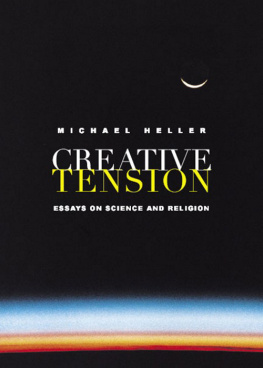BLACK MISCHIEF
BLACK MISCHIEF
Language, Life, Logic, Luck
SECOND EDITION
David Berlinski
Copyright 1988 by David Berlinski
All rights reserved.
No part of this publication may be reproduced or transmitted in any form or by any means, electronic or mechanical, including photocopy, recording, or any information storage and retrieval system, without permission in writing from the publisher. For information, address Writers House LLC at 21 West 26th Street, New York, NY 10010.
ebook ISBN 978-0-7867-5395-6
Distributed by Argo Navis Author Services
For
My Parents
To
Victoria
Contents
I am grateful to John Casti and Hugh Miser for cooking up the deal that allowed me to spend time at leisure in Vienna at the International Institute for Applied Systems Analysis; and to Ren Thom, for making it possible for me to enjoy the hospitality of the Institut des Hautes tudes Scientifiques in Paris. These are wonderful institutes and cities in which to work, and wonderful friends to have had.
Carolyn Artin and Klaus Peters at Harcourt Brace Jovanovich read this revised version of my book with great care, and reported their occasional reservations to me sotto voce, with infinite and endearing tact.
I have taken the occasion of the second edition of this book to slash away at a number of passages, paragraphs, and pages that seemed to me to say twice what needed only to be said once.
The original version of Black Mischief contained neither a table of contents nor a set of chapters organized roughly by content: I had hoped that the thing might be read from front to back, or back to front, like the Talmud. My readers advised me simply to knock it off: They wished, they said, a table of contents and chapters that made sense. In this edition, they have both.
And as long as I am writing in a wonderfully forthcoming mood, I may as well mention a few other matters.
Any form of self-expression is necessarily a form of self-invention. The incidents that I record in this book are all of them true: Everything happened as I say it did. Yet the reader might remember from time to time that the character who appears in these pages, using my name, and apparently living my life as well, is not strictly speaking identical to his author, however much they may have shared a number of unforgettable experiences.
This book will not take the casual reader to the cutting edge of research. Nor is it meant to. What I am after in Black Mischief is the moment in which various lines in an intellectual field of force collect themselves into a kind of dense knot. Thus when I think of linguistics, the time is 1970 or thereabouts; Noam Chomsky is attacking B.F. Skinner; I am a professor at Stanford University; I am twenty-eight years old. No doubt, a great deal has happened since then; and yet, I would argue, this was the turning point, the moment at which a clotted singularity appeared in the history of thought.
A number of otherwise sympathetic reviewers have suggested that my real aim in Black Mischief was somehow to show the persistence of certain outmoded Newtonian forms of thought in economics, or psychology, or biology, or wherever. Not so. My intention has been to explore a tangle of connected concepts. The idea of a Newtonian system is one such concept, but I discuss in this book microeconomics and utility theory, stock-market forecasting, random walks or romps, systems analysis, behavioral psychology, generative grammar, finite state automata, the Hilbert Program, artificial intelligence, differential equations, formal systems, theories of information and complexity, thermodynamics, entropy, the theory of probability, statistics, mathematical model theory, logic, the incompleteness of arithmetic, the theory of the singularities of smooth maps, and the neo-Darwinian theory of evolution. No one concept ties these separate concerns together. My book is unavoidably episodic. Yet the careful reader will discover that these separate subjects are unified by a number of themes and threads: I have tried wherever possible to organize what I have written in terms of the metaphor of a machine the most general of devices taking inputs to outputs by means of a set of states. And I have stressed the crucial role in a certain class of arguments of the concept of a classification.
Finally, I have restored to a position of prominence certain sections of my manuscript that my hard-cover publishers assured me I could not print and they would not publish. In this regard, I will always treasure the memory of my editor standing beside his desk, an admonitory finger poised by the side of his nose, realizing, just as he was about to launch into a lecture, that the pages of my book he had thoroughly intermingled with the pages of a book documenting the life of Tina Turner.
David Berlinski
I have never been particularly eager to know how it is that the universe was formed, or how a magnet works, or why, for that matter, water flows downhill. I am comfortable with the thesis that objects unsupported fall toward the center of the earth because they have an affinity for the ground, and believe it superior to that offered by Newton. There it is a certain implacable lack of physical curiosity. My interest in science is science: I am by nature a second-story man.
The great scientific culture of the western world our scientific culture achieved its first and most spectacular success in mathematical physics; for many years, it was assumed by scientists elsewhere that it was after physics that the other disciplines were intended by divine grace to gallop. This lent to the sciences as a whole an engagingly cinematic cast, with theoretical physics receding rapidly into the distance, pursued by any number of steaming subjects, their sides heaving and their flanks wet. Physicists still see the world in such vibrant Technicolor terms. I like the setting but not the shot, and incline toward a more up-to-date biological image, with science cast as one of those ominous protozoan-like blobs that Japanese fishermen were forever dredging into their nets in movies of the mid-1960s. With no apparent organizing center, and lacking even a head, the thing would divide, and then divide again: physics, chemistry, biology, economics, psychology, sociology, at which point screams commenced.
Every language, it is sometimes said, creates a special world. The universe of the fish-smelling, raven-haired Eskimo, much occupied with sorting snow into very many grades and shades (smooth snow, shiny snow, sad snow...), is inaccessible to me. In the contemplation of this circumstance, I experience no sense of loss. What holds for language holds for life as well. Without too much by way of intellectual discombobulation, I can imagine myself living as a Frenchman, or even as a bat, and worried thus about my liver or my ears. A style of the imagination in which the concepts of accuracy, inference, theory, experiment, data, computation, and evidence did not figure conspicuously, I would regard as pretty much one with the Eskimo.
And not only me. Were one to collect in a very large box all of humanitys scientists, from the first Babylonian, peering out at the night sky, to the youngest and brightest of contemporary physicists, talking credulously of the Big Boom in the brisk, inescapable present, the majority would yet be alive, and squirming, no doubt, to get out. This is one of those curious, hopelessly irrelevant facts forever washing over us like so many sandy waves. Indeed, the sheer volume of current scientific work is often taken as evidence for the vibrancy of scientific culture on the assumption, evidently, that in order to measure the height of the Tower of Babel, it is necessary to count the number of languages spoken at its base. At first cut, it is true, there
Next page







